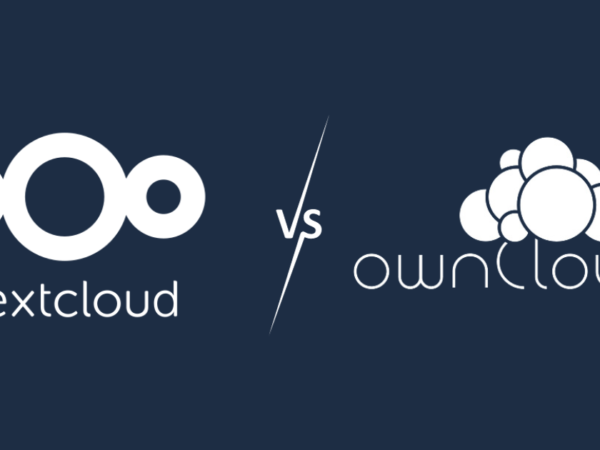ExpressJS is a minimalist and flexible Node.js web framework that offers a set of features for both mobile and web applications.
This open-source web framework was developed by TJ Holowaychuk. ExpressJS is maintained by the Node.js Foundation.
Why ExpressJS?
ExpressJS offers simple APIs to help developers build back-ends, web apps, and websites. This web framework is thus comparable to Python’s Django and Ruby’s Rails.
However, unlike Django and Rails, which have an opinionated way of building APIs/ applications, ExpressJS is very flexible and pluggable, as it has no ‘best way’ of doing things.
To summarize, these are the reasons why you should use ExpressJS;
- Easy to create APIs and web applications.
- Its APIs are robust, making routing easy
- Asynchronous and single-threaded
Features of ExpressJS
#1. Part of the MEAN Stack
JavaScript remains to be one of the most popular programming languages as it has frameworks that can be used on both Frontend and back end of a full-stack application.
Some Javascript developers use MEAN, the short form of MongoDB, Express, Node. js and AngularJS to create full-stack applications. Some developers prefer Reactjs and use the MERN (MongoDB, Express, Node. js, and Reactjs) stack. In both options, Expressjs remains constant.
#2. Flexible and fast
You don’t have to master many different parts of a larger framework, as ExpressJS is designed to be minimalistic. The presence of an excellent routing system, content negotiation right out of the box, and middlewares make it fast.
#3. Scalable
It is easy to scale applications built on Express, explaining why many organizations use it. When developing large-scale applications, Express needs little to no extra configuration. The presence of many modules, packages, and additional resources makes it practical to develop large-scale applications easily.
#4. Presence of middleware
ExpressJS has a series of middleware apps to speed up and enhance the development process. Middleware makes it easy for a framework to run a typical script before or after a client request. The presence of middleware makes it easy for developers to check client actions such as sign-ups/ins and logouts.
#5. Powerful routing system
ExpressJS’s routing system allows developers to create powerful APIs that handle almost all HTTP requests. You don’t have to end up with a bloated routing system, as you can split your code into manageable files using the router instance. You can also group different routes into a single directory/ folder to manage your application better.
Architecture of ExpressJS
An Express Application will have the following components;
- Dependencies. ExpressJS itself is a dependency. You can install the other dependencies using the npm command.
- Middleware. Middleware in an ExpressJS setup is the function determining the request/response cycle.
- Instantiations. These are simply statements used to create an object.
- Configurations. Configurations are custom application-based settings defined after instantiations or in a separate file
- Routes. Routes are the endpoints that clients use to reach various resources or perform certain actions defined by the server.
- Bootstrapping Server. The
app.listen()function is executed to start the development server.
Getting Started: ExpressJS
ExpressJS runs on Node.js, which means you need to install it on your PC.
You also need Node Package Manager (npm) to manage all the dependencies on your development environment.
You can install Node through its official website based on your operating system.
Once you are through, run these two commands to ensure that node and npm are installed, respectively.
node --versionnpm --versionInstall ExpressJS
Follow these steps
- Create a simple ExpressJS app. You can create it manually or use these commands
mkdir myappcd myapp- Create a package.json file using this command
npm init- Accept the commands based on the prompts provided. However, change; the entry point: (index.js) to app.js
- Install ExpressJS using this command
npm install express- Display “Hello World”
While inside the root directory, create a file and name it app.js
Add this code
const express = require('express')
const app = express()
const port = 3000
app.get('/', (req, res) => {
res.send('Hello World!')
})
app.listen(port, () => {
console.log(`Example app listening on port ${port}`)
})Run this command to start the local server
node app.jsGo to http://localhost:3000/ on your browser, and you will find this output
Express Application Generator
The application we created manually above is very basic. However, you can escape the manual creation of an ExpressJS app by using the Express generator.
- This is the command to generate your ExpressJS app.
npx express-generator- If you are using a node.js version earlier than 8.2.0, you can install the application generator and launch it using these commands;
npm install -g express-generatorexpress- Create your app
express --view=pug myappThe above command will generate an app named ‘myapp’
- Install all the dependencies needed using these commands
cd myapp
npm install- Run the development server depending on your operating system
On Windows PowerShell;
PS> $env:DEBUG='myapp:*'; npm startOn Windows Command Prompt;
> set DEBUG=myapp:* & npm startOn macOS or Linux;
DEBUG=myapp:* npm startAccess http://localhost:3000/ on your browser, and this is what will be displayed
#1. Fintech apps
Banks and finance organizations are going digital, raising the demand for fintech apps. Such apps are used to support/enable financial and banking services. ExpressJS has proven to be a powerful framework for creating scalable fintech apps.
#2. Single-app applications
Single-app applications, where the entire application is routed on a single page, have become the modern way of application development. Big mobile and web apps such as Airbnb, Netflix, Pinterest, Paypal, Gmail, and Google Maps are perfect examples of single-app applications. ExpressJS is a perfect framework for creating single-app applications with easy routing.
#3. Streaming applications
Apps such as Spotify and Netflix may appear simple to end users. However, such apps are complex, with multiple layers of data. ExpressJS is an awesome choice for creating such apps as it can efficiently handle asynchronous data streams.
#4. Real-time collaboration tools
Modern working environments are made up of teams that collaborate on different tasks for a common goal. ExpressJS comes with various features that support the development of collaborative tools. This framework is also useful when creating dashboards and real-time application chats, as it is easy to integrate with WebSocket.
Advantages: ExpressJS
- Free and open-source. You don’t have to pay anything to use ExpressJS. You can also modify the existing code to suit your needs.
- Ease of use. ExpressJS allows you to write code without following complicated processes. The framework already has tons of tools and features to simplify the process.
- Rapid development. ExpressJS has many templates to ensure you don’t create everything from scratch.
- Great performance. Apps created on ExpressJS perform exemplary, and you can thus use it on both small and enterprise apps.
Disadvantages: ExpressJS
- Some error messages aren’t helpful. Unlike other back-ends/API development frameworks, 404 responses in ExpressJS do not necessarily indicate an error.
- Not so good at code organization as there is no best way of doing things.
Learning Resources: ExpressJS
#1. Node.js, Express, MongoDB & More
This course is ideal if you want to learn the entire back-end stack from one resource. At the end of the course, you can create fast and scalable RESTful APIs using ExpressJS and other associated technologies.
#2. Just Express
This is the course to take if you want to operate that Express Server as a REST API. This course also teaches HTTP basics and makes it easy to understand the request/response cycle.
#3. React, NodeJS, Express & MongoDB
This MERN full-stack course is ideal if you want to learn how to create JavaScript full-stack applications. Some of the things you will learn are how to connect ReactJS with NodeJS, Express & MongoDB, how to implement Authentication & Authorization, and so much more.
#4. Express in Action: Writing, building and testing Node.js applications
Express in Action is a book that details the steps of creating web applications using Node and ExpressJS. You will learn how to set up an ExpressJS app, data storage with MongoDB, and how test Express apps, among many other things.
#5. Express.js: Guide Book on Web framework for Node.js
Express.js: Guide Book on Web framework for Node.js provides an in-depth exploration of the ExpressJS web framework. The discussions in this book are based on the various models that ExpressJS provides to users.
#6. ExpressJS official documentation
ExpressJS is a well-documented node.js framework, and you can learn everything you need to get started on the official docs. You can use this resource irrespective of whether you are just getting started or an advanced developer.
Wrapping UP
ExpressJS is one of the most famous Node.js web frameworks in the modern world. The assortment of powerful features and its easy learning curve has made it hold this position over the years. ExpressJS serves as the foundation of Node.js, which means that understanding it makes it easy to grasp other associated frameworks.
![Kirelos Blog Introduction to ExpressJS [+6 Learning Resources] Introduction to ExpressJS [+6 Learning Resources] Development Open Source](https://s3.eu-central-1.wasabisys.com/kirelos/wp-content/uploads/2023/01/04115133/introduction-to-expressjs-6-learning-resources-950x358.png)


